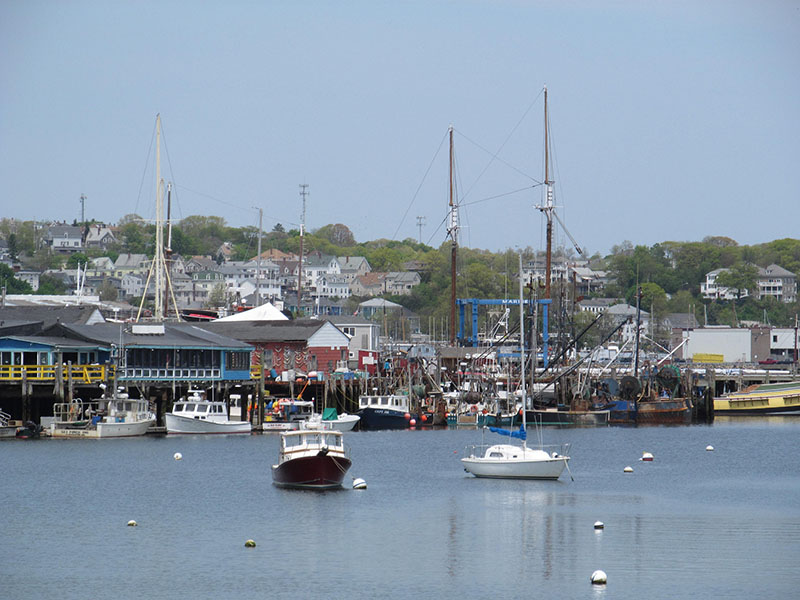If you’re reading National Fisherman, you probably have a pretty good idea what’s ultimately wrong with New England’s groundfish fishery. (Hint: it’s not the amount of fish in the ocean.) If you have friends and associates in need of enlightenment, take them to a screening of David Wittkower’s “Dead in the Water.” It will be eye opening for them — even if it makes you want to shut your own eyes and put your head in your hands.
 You won’t. In his sixth directorial effort, Wittkower has given us a powerful, take-no-prisoners look at how NOAA’s oversight has driven New England’s commercial fishing industry onto the rocks. This is documentary in the true sense of the word — it documents, through historical context and the voices of numerous fishermen, advocates, politicians, and others, the all-but-inevitable results of nearly 25 years of misbegotten management.
You won’t. In his sixth directorial effort, Wittkower has given us a powerful, take-no-prisoners look at how NOAA’s oversight has driven New England’s commercial fishing industry onto the rocks. This is documentary in the true sense of the word — it documents, through historical context and the voices of numerous fishermen, advocates, politicians, and others, the all-but-inevitable results of nearly 25 years of misbegotten management.
If you believe New Englanders would be well served by a nuanced “on the one hand… on the other” film suggesting that NOAA’s heart was in the right place, but things just didn’t work out, this will not be to your liking. But if you have a hollow within you where the wharves of Gloucester and other New England ports once clattered and shouted — New Bedford having been saved by the scallop — and want an unsparing explanation of “How could this happen?” Wittkower shows you. And I mean “shows,” not “tells.” Wittkower is a filmmaker who understands imagery, and “Dead in the Water” is a montage of the vessels, faces, and voices of Gloucester and environs accompanied by a haunting score, with lyrics.
Wittkower sets the stage at a meeting of the New England Fishery Management Council to consider a groundfish shutdown in the Gulf of Maine. The voices, there and on the boats, are of men pleading for their lives. They are the voices of men who don’t know enough to surrender even though their way of life is meaningless when weighed against the most recent deeply flawed stock assessment. They know because they have been here before. And somehow, if they hang onto to their boats and their slender quotas, they will be here again.
Beginning in 1994, New England fishermen were told, sacrifice today, fish tomorrow. Instead, tomorrow has always brought gloomy assessments, higher biomass targets, and more restrictions. The fleet coped with days-at-sea limits, trip limits, and a buy-out, all followed by another round of buy-outs and further cuts in days at sea.
Fishermen were dropping like flies, but that was not fast enough to suit the government. Finally, NOAA told the remnant, “We have a solution: catch shares!”
The fleet formed sectors, and the sectors were given quotas. But the assessments continued to darken, in NOAA’s view, and as the agency continued to cut quotas the pieces of the pie grew smaller.
Indeed they did. “They just recently cut my cod quota by 78 percent,” one skipper laments from his wheelhouse. “That’s after they cut it two years earlier by 33 percent. And a few years before that, it was cut.
“My cod quota was cut 160 percent in a five-year period. How can that be?”
And yet it is almost as though he were speaking about the good old days. The council vote, at the film’s conclusion, in favor of a closure to be borne on the shoulders of the inshore fleet that characterizes Gloucester nowadays, was a foregone conclusion.
You can view a trailer of “Dead in the Water" online
Upcoming screenings:
Gloucester, Mass., 7 p.m., March, 20, Cape Ann Cinema, 21 Main St.
Newburyport, Mass., 7 p.m., April 4, Custom House, 25 Water St.
Waterville, Maine, 7:30 p.m., April 8, Railroad Square Theater, 17 Railroad Square.
Belfast, Maine 7 p.m., April 10, Colonial Theater, 163 High St.A Q&A with the filmmaker and fishermen will immediately follow all screenings.







